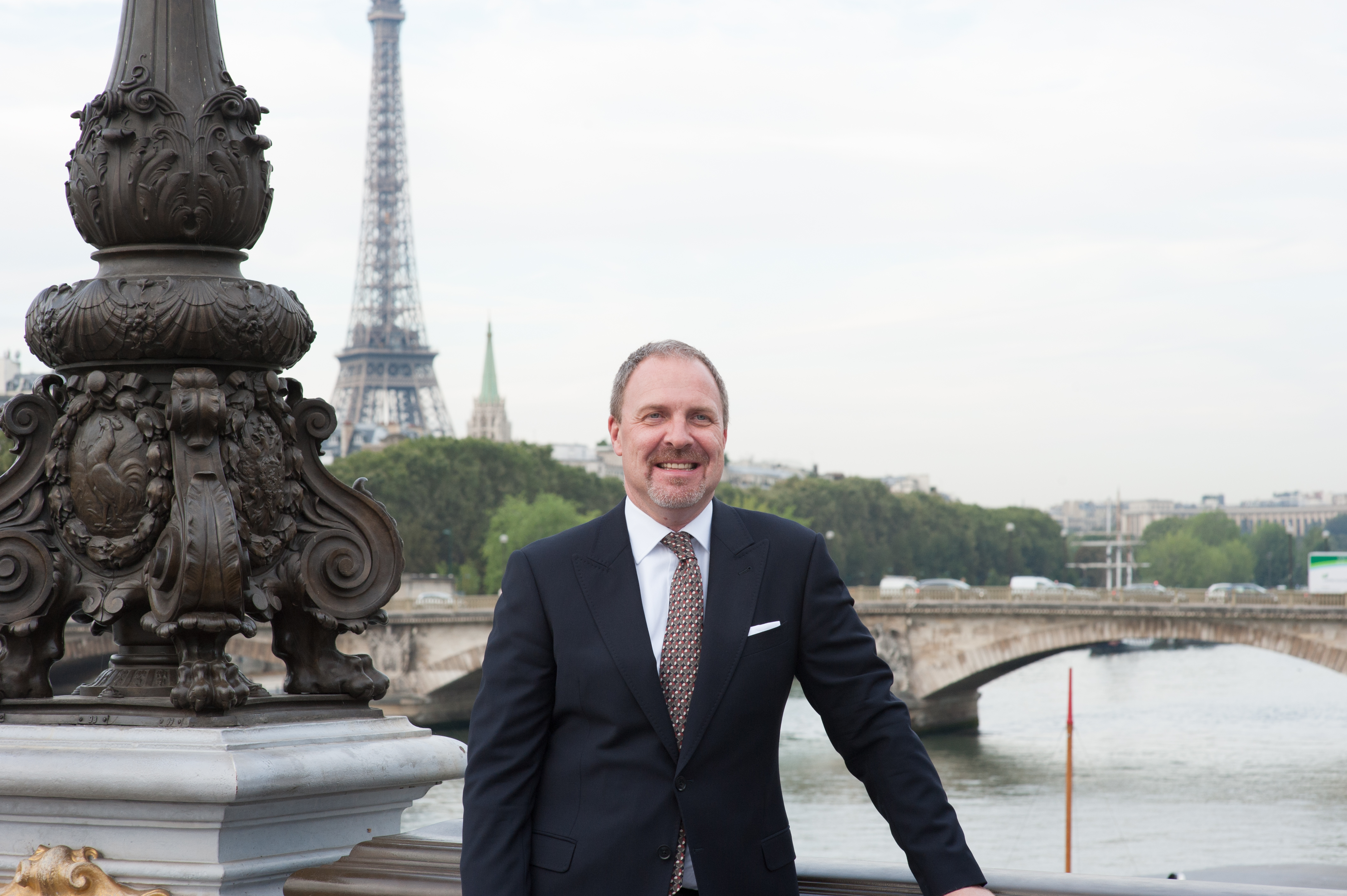Kristján Andri Stefánsson is Iceland’s new Ambassador in France and is already in Paris with his partner Davíð Samúelsson, well-known to many for promoting South-Iceland to our visitors and introducing the Faroe Islands to Icelanders. Together with his partner, Kristján will thus be the first gay Ambassador to be posted abroad by the Icelandic foreign service.
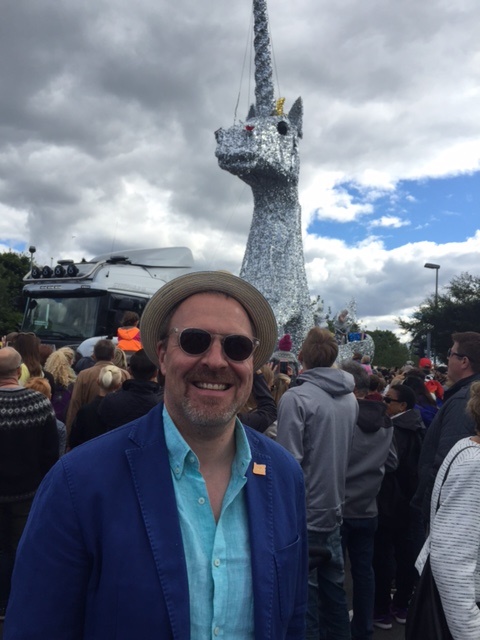
How does he feel about the new job?
“Arriving in Paris following the Icelandic team’s performance in the Euro Cup this summer is a sheer privilege. Building on the traditionally excellent relations existing between Iceland and France, I think the positive vibe brought on by our team’s performance – synching with their loyal supporters with the distinctive “huh” following every match – and the extensive media coverage entailed, may have brought relations between our people and their interest in one another to another level.
Apart from its impact on travel and tourism, France is already an enormously important market for Icelandic trade, not only fish and fish products, but also new technology and know-how. The cultural ties are also strong and active on many levels.
So, all in all, conditions are excellent for active and vibrant relations between Iceland and France and I look forward to follow-up on the positive wave brought on by the Icelandic team and their supporters in France.”
Have you spent a lot of time in Paris and does the city of lights have a specific meaning for you?
“The city of lights hardly needs an introduction. It’s the most popular destination in the world! For me, Paris has been a source of enchantment since I first came there, and I think it must be impossible for any visitor not to feel inspired by its dynamics at some level.
“We both feel very intrigued and enthusiastic to take on this new position. I have no reason to be concerned that we will not be well received in France … France is after all the cradle of human rights …”
When Davíð and I lived in Brussels, Paris was often the preferred destination for a weekend getaway – and when we got married, there was no question where we would be headed for our honeymoon. There’s no place more romantic than Paris!
And, of course, Paris continues to be a charmer. Despite the horrendous attacks suffered there and elsewhere in France recently, it’s important that we stay strong and hold on to the fundamental values shared by human civilization in our times. In that sense I’m already a Parisian: Je suis Charlie!”
Are you worried about meeting prejudice in France? It’s only recently that the law of equal rights to marry was passed there. Are the French open-minded in these matters, in your opinion?
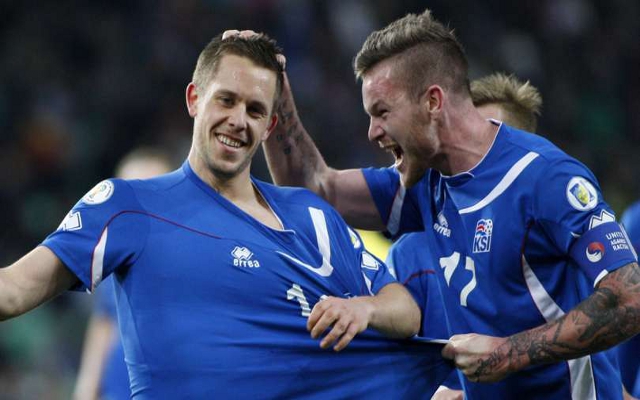
“We both feel very intrigued and enthusiastic to take on this new position. I have no reason to be concerned that we will not be well received in France. Quite the contrary. France is after all the cradle of human rights and the basic values French society is based on (liberty, equality, fraternity) are as important as ever. Even if social acceptance may have reached a higher level in Iceland before the right to marriage was gradually granted to all, the French followed suit some years ago and I hope there is no prevailing stigma concerning the relevant legislation even if it was actively debated when it was adopted.
In fact, as I will also be accredited to Spain and Italy, I’m pleased to note that the right to marry was granted to all in Spain many years ago, and Italy has recently adopted a legislation on registered partnership. Every step in the right direction is a step to be reckoned with.”
Did not hesitate to bring his partner into the picture
At your last posting abroad, you were based in Brussels. Were you also accompanied by your partner there? How were you received?
“Interestingly enough, I met Davíð relatively shortly after I moved to Brussels. I may be a late bloomer but once we were committed, I did not hesitate to bring him into the picture. I was pleased to find that we were well received everywhere, at the workplace, by the colleagues, in the social circles, not to mention among my friends and family. I was more surprised to find my social circles growing at a faster pace than I had experienced before and many of the friends that we have made together are those that we socialize most with today. All attributable to my extrovert partner, of course!
On this note, perhaps we should also keep in mind that there are many gay couples in the foreign service of other states, and some of them, like the US and Canada, actively promote gay rights. Hence their embassies’ participation in the Pride Parade in Reykjavík the last few years. To some extent, the good example set by others, may thus have paved the way for us and the positive experience we have enjoyed.”
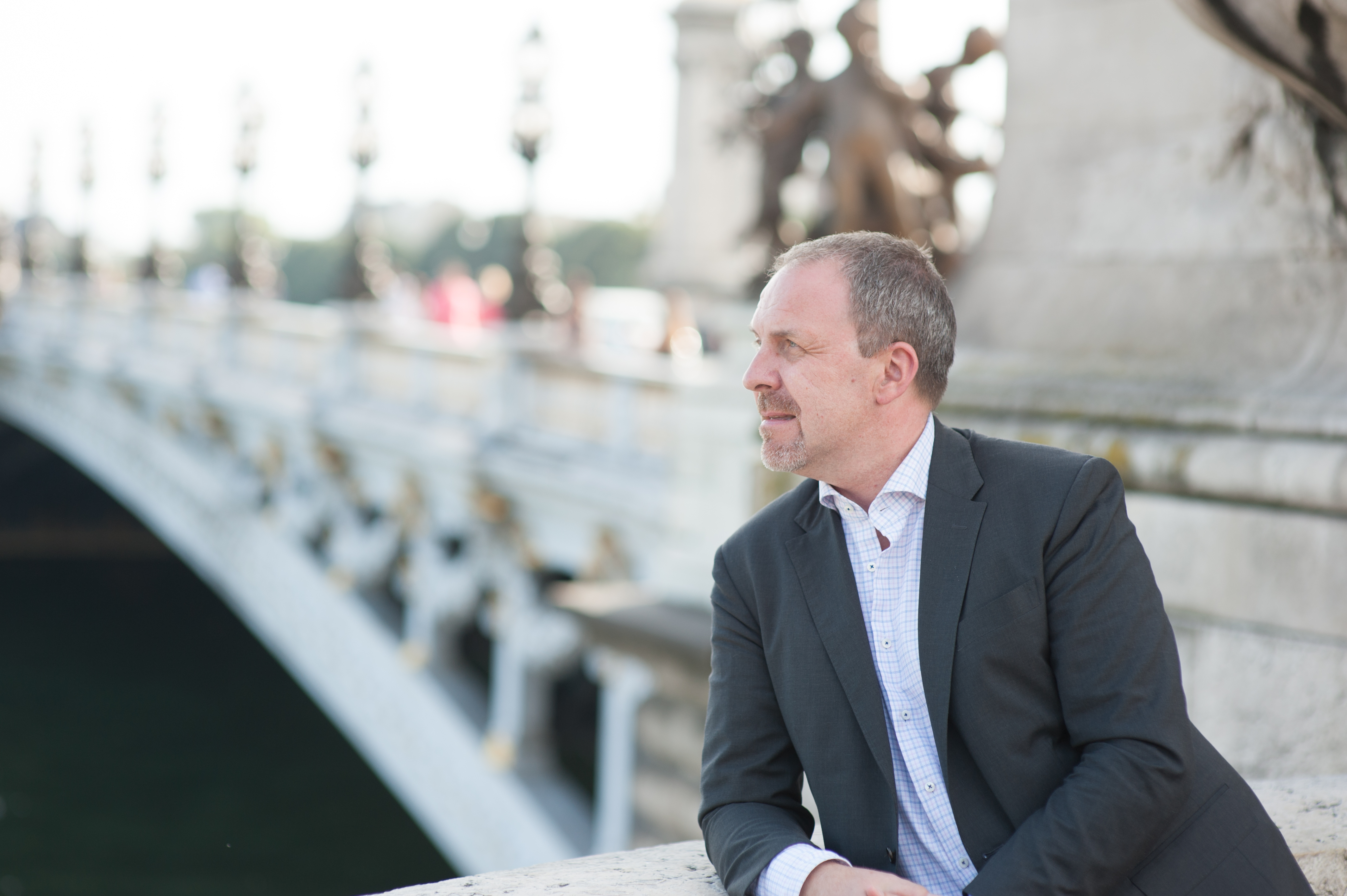
Does the foreign service promote LGBTI+ rights? Do they filter into Iceland’s foreign policy making in any way?
“They do indeed. Human rights and respect for them are among the basic guiding principles of Iceland’s foreign policy. Iceland’s main priority interests in human rights issues continues to be equality in a broad sense, including gender equality, LGBTI+ rights and fighting discrimination on grounds of sexual orientation. In the international arena, the focus of the foreign service and funding contributions to development issues will continue to take account of these key factors of Icelandic foreign policy.
At the United Nations and other international organizations, where the member states have committed to uphold and protect human rights for all, we work with the Nordic countries and other like-minded nations to promote these issues and press for improvements. Also on the bilateral level, we do not hesitate to put LGBTI+ rights on the agenda whenever that is called for.
“… attitudes towards gays and lesbians have been totally transformed … On the other hand, there is still work to be done. Many groups of the LGBTI+ community have not gained full legal rights …”
Visible support is also an important element of pursuing this policy. I was happy to note that representatives of the Icelandic foreign service took active part in the pride parades in three major cities this summer, New York, Washington and Stockholm, in cooperation with the other Nordic countries. Perhaps we can do something similar in Paris, Madrid or even Rome!”
What do Icelanders have to contribute in this matter?
“I think we have an interesting story to tell and that there’s a lot to be learned from the gay rights campaign in Iceland. It really is a fascinating chronicle of struggle and victory almost unique in the world. In only thirty years, attitudes towards gays and lesbians have been totally transformed. Since the establishment of Samtökin ’78 lesbians and gay men have now gained full legal rights that are equal to all, e.g. with regard to cohabitation and marriage, adoption and family planning, and protection against discrimination.

I think this positive attitude is clearly reflected in the Reykjavik Pride Parade drawing tens of thousands of people to the streets every year. This year, it is thought that around 90 thousand people turned up to follow the parade. That is close to a third of the entire population of the Icelandic nation showing support for human rights and equality for all.
On the other hand, there is still work to be done. Many groups of the LGBTI+ community have not gained full legal rights that are equal to all and we still have to fight against prejudice.
Professor Baldur Þórhallsson has developed an interesting theory that divides this progress from intolerance to full acceptance into six stages, going from total silence to full equal rights for all. What is interesting according to this theory is how many different elements of society were engaged in this process and how the interplay between them gradually secured this result.
I think there are many lessons to be learned from this process, one of them being how important it is to keep an open dialogue with government and politicians that are favorable to this cause. Having worked closely with politicians for almost my entire professional life, the impact of strong politicians and what they can accomplish, should not be ignored.”
At the forefront when it comes to securing equal rights
Is it a general opinion abroad that Icelanders are doing well in matters of LGBTI+ rights?
“With Iceland having followed progressive trends in the neighbouring states, we are definitely perceived as being in the forefront when it comes to social acceptance and securing equal rights for all. Working with the Nordic and other like-minded nations on these issues provides a good platform for moving progressive ideas across borders. The positive image we enjoy in this respect on the international level, provides us with a potential that may remain to be fully realized.
When it comes to influencing policy making at the international level, research shows that countries are most likely to succeed in areas where they have excelled or stand out at home. With regard to Iceland, the success of geothermal exploitation and gender equality is well-known world-wide, to
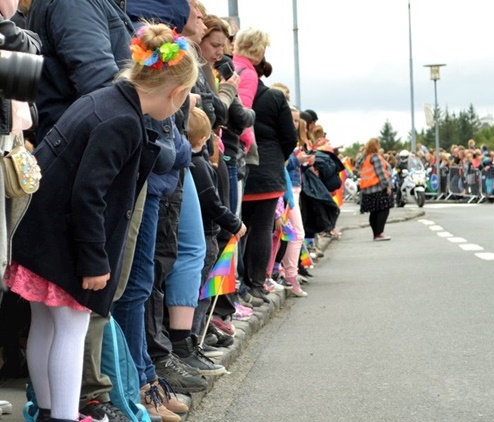
name but two very different areas where we have valuable expertise to share and use it systematically to promote international cooperation. I wonder whether same could not apply to enhance LGBTI+ rights on an international level.”
What will be the first tasks that the new ambassador in France has to deal with?
“I will have a team of both young and more experienced professionals at the Embassy in Paris, that I very much look forward to start working with. In a sense the post in Paris is every diplomat’s dream having both the bilateral relations to work on and to represent the government at the international organizations based in France, namely the OECD, UNESCO and the Council of Europe. I expect to spend the first few weeks introducing myself at these organizations and getting familiar with the issues they’re dealing with.
“… we have valuable expertise to share and use it systematically to promote international cooperation. I wonder whether same could not apply to enhance LGBTI+ rights on an international level.”
Once I’m operational in France, I will also start presenting myself in the diplomatic circles there and within the French administration along with exploring ways to support and promote Icelandic businesses and strengthen the well established cultural ties between the two countries.
As I said at the beginning of this interview, I’m in the privileged position to arrive in France while the positive vibe left by the Icelandic football team is still fresh and vivid in people’s minds. My job is to capitalize on this positive attention brought on by the Icelandic team and make sure that we continue to be their favorite team to play with.”
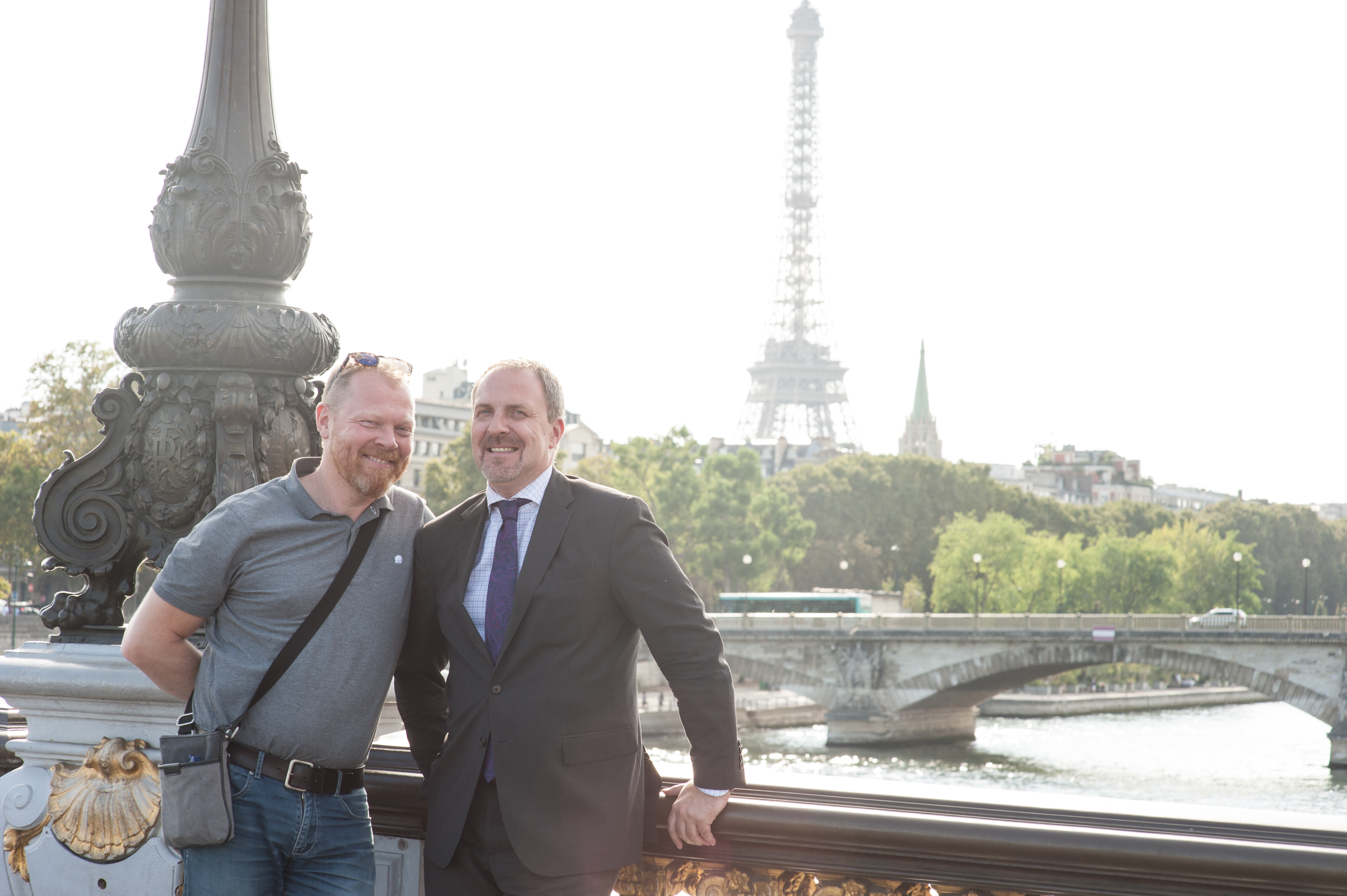
Photos (main, middle and bottom): James Pouliot

